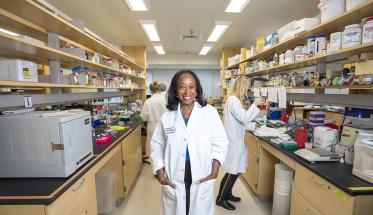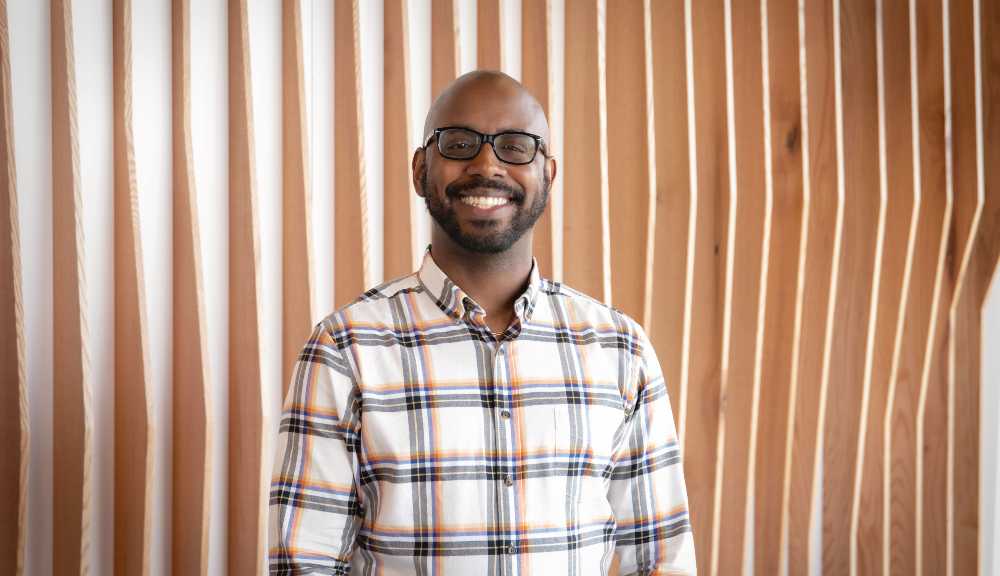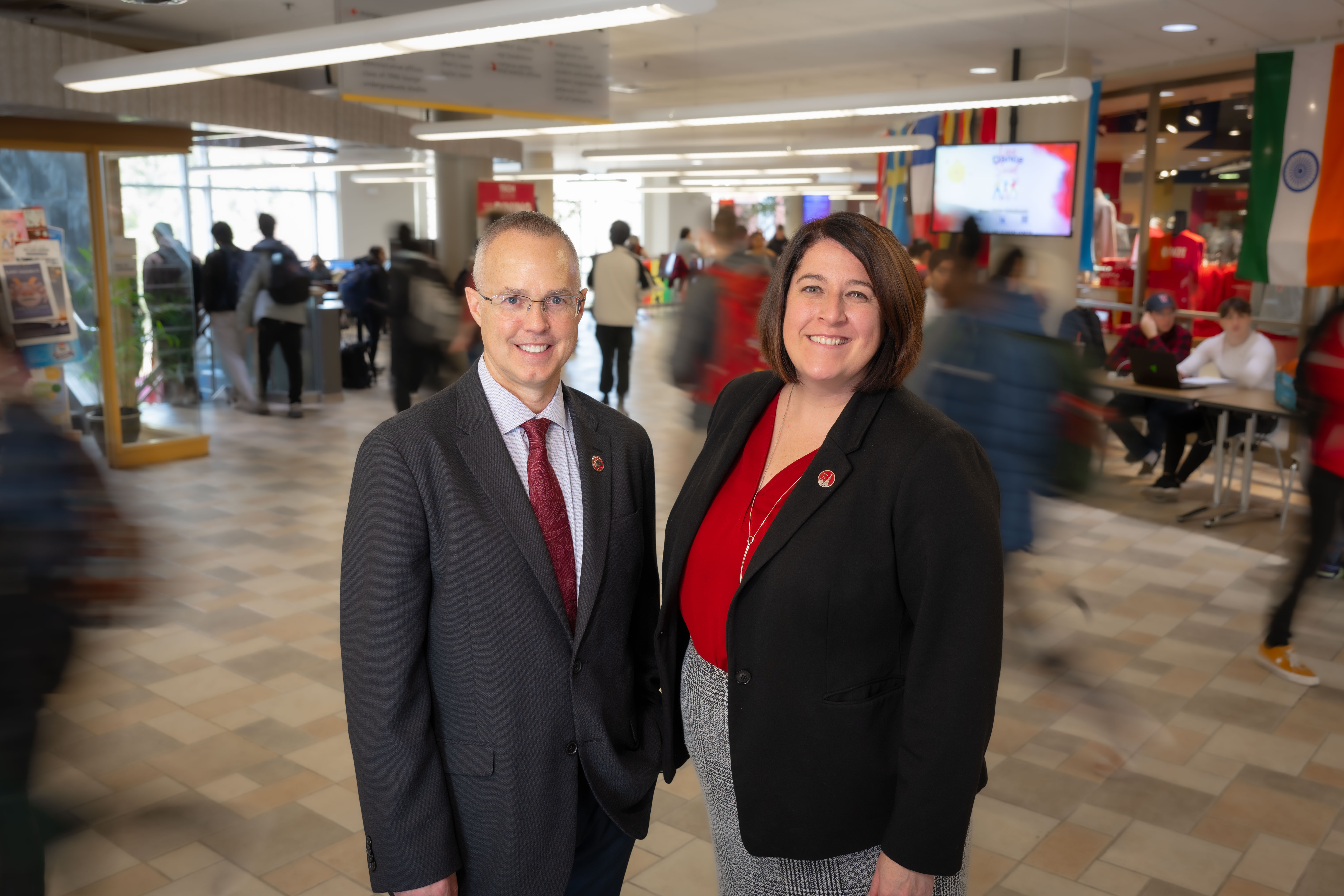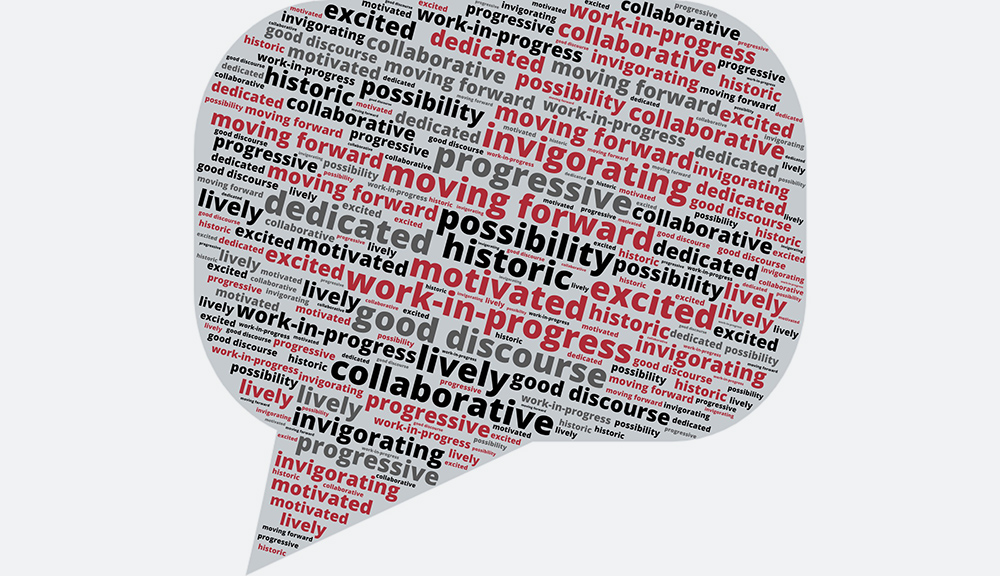This month marks not only the inaugural celebration of Arts & Sciences Week at WPI (Sept. 10-14), but also the one-year anniversary of Jean King’s appointment as the Peterson Family Dean of Arts & Sciences and a professor in the Department of Biology and Biotechnology. In anticipation of these milestones, King sat down with the Daily Herd to discuss her time at WPI so far, the role of arts and sciences at a technological university, and her plans for the future.
What has your first year at WPI been like?
My first year has really been focused on getting to know the depth and breadth of the many departments and programs within the Arts & Sciences. I’ve been amazed and thrilled with our faculty and their many achievements. We’re lucky to have incredible faculty working on interdisciplinary research, doing innovative, cutting-edge research and other forms of scholarship and teaching. We’ve been working on expanding our global initiatives while solidifying new ones.
I’ve been very pleased with the many initiatives in my first year, mainly because of WPI’s collaborative community. There are very few weeks where I’m not meeting with one of the other deans, faculty members, student advisory groups, or staff about something we’re working on together. It has been about how we truly work together as partners, not just one person leading and the others following; the inclusion of more voices to help us ultimately change the world is, without a doubt, not just a passion but a need.
What inspired you to get into the field of neuroscience?
I started off as a graduate student wanting to be a cell biologist. I actually wanted to study diabetes. I had the whole thing worked out. And then I went with a friend to a guest lecture on neuroscience and, within an hour, I knew that was it—that was what I wanted to do.
I’m interested in the brain because it’s so complex, it’s the hub of control for the rest of the body. If it doesn’t work, everything else will be affected. I’m also a multidisciplinary person—I have degrees in biology but I’m interested in engineering, I love physics, and I like using transdisciplinary tools in a biological framework. Part of the appeal of neuroscience is that I am able to combine lots of fields (in neuroscience and neuroimaging) to tackle complex problems.
Between my graduate school, postdoc, and faculty appointment, I made the decision that the areas of mental health were ripe for innovative research. It was clear that there was a big stigma associated with mental illness and we needed more and better treatment options—and it’s still true—that it was a place I could potentially make an impact. This mission grew and evolved, and as I met people who had significant problems that there weren’t a lot of solutions for, I became more and more committed to my research and having an impact.
Can you comment on the role and importance of arts and sciences at a technological university?
The arts and sciences have a critical, valuable role in the education of all students. WPI’s Arts & Sciences curriculum provides a more complete, holistic education to our students by teaching them to ask critical questions, analyze information, and innovate solutions to a broad range of problems.
"I’ve been very pleased with the many initiatives in my first year, mainly because of WPI’s collaborative community ... It has been about how we truly work together as partners, not just one person leading and the others following; the inclusion of more voices to help us ultimately change the world is, without a doubt, not just a passion but a need."
In addition to encouraging critical thinking, our A&S curriculum supports creativity and deepens our students’ understanding of the social, cultural, economic, and political impacts of their work.
What plans do you have for next year?
First and foremost, we’ll be highlighting our A&S community at the inaugural WPI Arts & Sciences Week, September 10–14. It will be an academically engaging and fun-filled week with TED talks by students and faculty, musical performances, a student talent show, and a celebration of A&S authors, departments, and programs … we’re really looking forward to showcasing the many dimensions of the arts and sciences and sharing our work and ideas with the community.
We’re also working on an initiative to develop undergraduate and graduate programs in neuroscience and to develop a robust, externally funded research program that complements and intersects areas where WPI is already strong. We have nearly 50 WPI faculty members across nine departments already engaged in neuroscience-related work and we’ve heard from many students who are interested in a neuroscience program.
Our division will also be working with Engineering, the School of Business, and the Division of Talent & Inclusion on a social justice and technology initiative that will bring together faculty across campus to coordinate their work in social justice and look into new areas we may want to address. This will kick off with a Social Justice Summit on October 3.
Another area of focus for Arts & Sciences in the coming year is creating a research mentoring program for our junior faculty, giving them tools and guidance to develop their own research portfolios. And we hope to work with other mentoring groups on campus to help our faculty in other areas of scholarship.
We are indebted to our External Arts and Sciences Advisory Council, department heads, program leaders, faculty members, the larger Arts & Sciences community (students and staff), as well as to our undergraduate and graduate student advisory groups for helping hone our vision and aspire to global impact.




